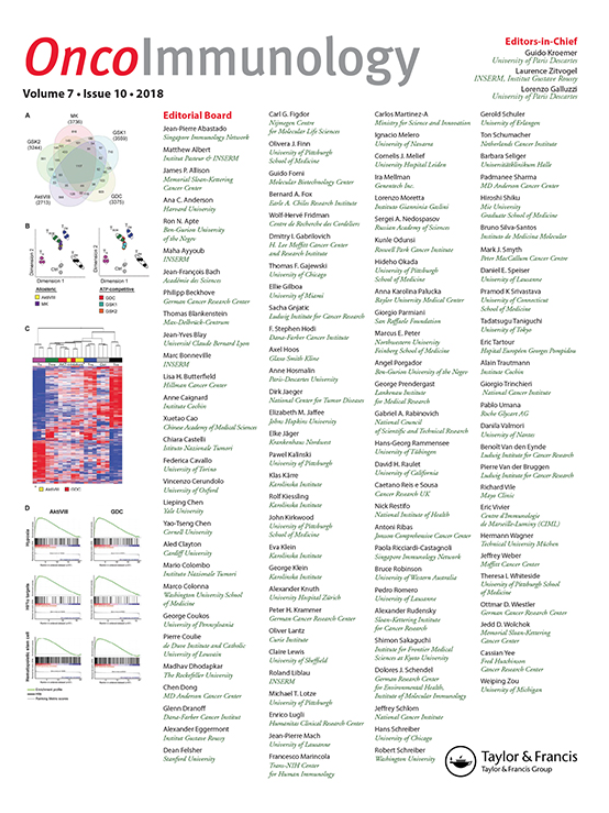利用高效肿瘤抗原涂层设计的沙门氏菌免疫疗法可建立抗原特异性 CD8+ T 细胞免疫,并提高 I 型干扰素联合疗法的抗肿瘤疗效
IF 7.2
2区 医学
引用次数: 0
摘要
以细菌为基础的癌症疗法采用了多种策略来对抗肿瘤,其中之一就是传递肿瘤相关抗原(TAA)以产生特异性免疫。在这里,我们利用一种聚精...本文章由计算机程序翻译,如有差异,请以英文原文为准。
Salmonella immunotherapy engineered with highly efficient tumor antigen coating establishes antigen-specific CD8+ T cell immunity and increases in antitumor efficacy with type I interferon combination therapy
Bacteria-based cancer therapy employs various strategies to combat tumors, one of which is delivering tumor-associated antigen (TAA) to generate specific immunity. Here, we utilized a poly-arginine...
求助全文
通过发布文献求助,成功后即可免费获取论文全文。
去求助
来源期刊

Oncoimmunology
ONCOLOGY-IMMUNOLOGY
CiteScore
12.80
自引率
2.80%
发文量
276
期刊介绍:
Tumor immunology explores the natural and therapy-induced recognition of cancers, along with the complex interplay between oncogenesis, inflammation, and immunosurveillance. In response to recent advancements, a new journal, OncoImmunology, is being launched to specifically address tumor immunology. The field has seen significant progress with the clinical demonstration and FDA approval of anticancer immunotherapies. There's also growing evidence suggesting that many current chemotherapeutic agents rely on immune effectors for their efficacy.
While oncologists have historically utilized chemotherapeutic and radiotherapeutic regimens successfully, they may have unwittingly leveraged the immune system's ability to recognize tumor-specific antigens and control cancer growth. Consequently, immunological biomarkers are increasingly crucial for cancer prognosis and predicting chemotherapy efficacy. There's strong support for combining conventional anticancer therapies with immunotherapies. OncoImmunology will welcome high-profile submissions spanning fundamental, translational, and clinical aspects of tumor immunology, including solid and hematological cancers, inflammation, and both innate and acquired immune responses.
 求助内容:
求助内容: 应助结果提醒方式:
应助结果提醒方式:


